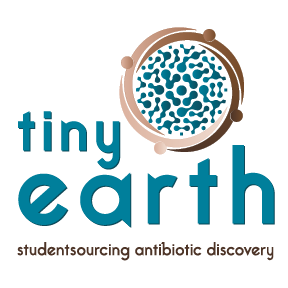
Celebrating studentsourced antibiotic discovery
for students and instructors
Thurs, June 13 at 9 AM – 5 PM CDT | For TEPIs & students
Wisconsin Institute for Discovery
University of Wisconsin-Madison
330 N Orchard St, Madison, WI 53715
The Tiny Earth Summer Symposium is a two-day event designed to showcase student research findings, delve into current advancements and challenges in antibiotic discovery, and engage instructors in sharing instructional innovations. Tiny Earth students and instructors will meet in-person at the University of Wisconsin–Madison for an opportunity to network with Tiny Earth researchers from around the globe.
Tiny Earth Partner Instructors (TEPIs) will convene on June 12th to engage and share new innovations in teaching and learning. TEPI Day will feature Tapas Talks, a series of bite-sized, dynamic presentations, plus new updates and content from Tiny Earth Headquarters including Scientific Teaching Course and Tiny Earth Discovery Database workshops. June 13th will feature student research poster sessions, plenaries from Dr. Jo Handelsman (UW-Madison) and Dr. Roselin Polugari (St. Francis College for Women, Hyderabad), and a panel discussion: Diverse Perspectives to and from Microbiology.
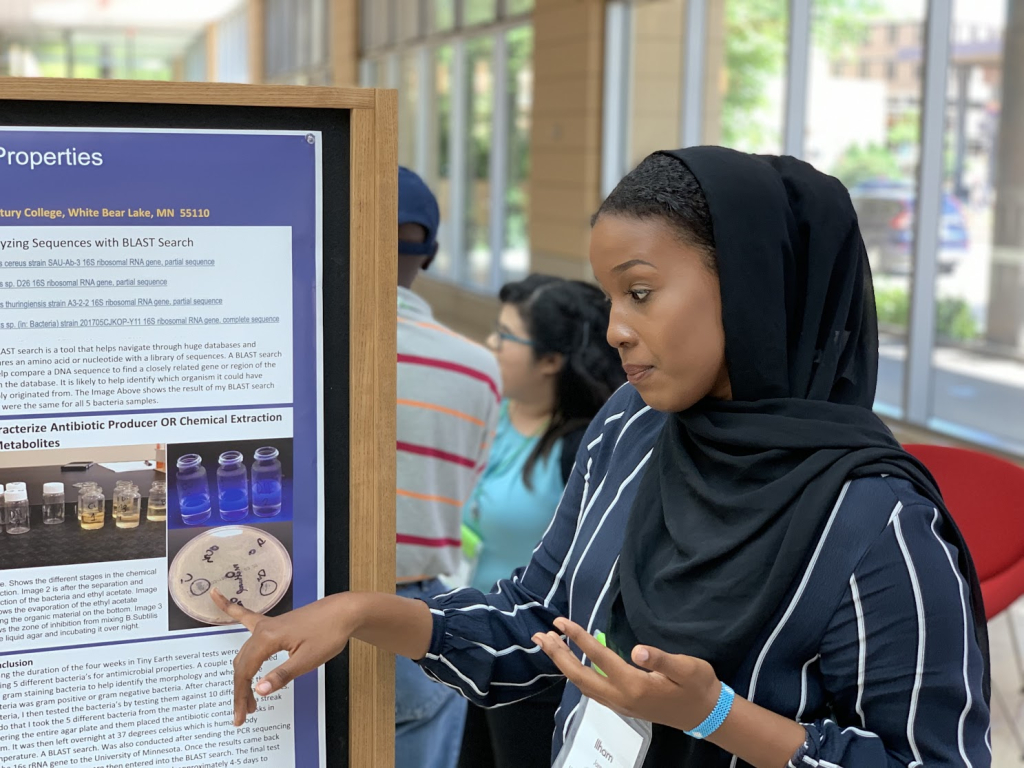
Important Deadlines
Registration (EXTENDED): May 24
Lodging requests are now closed.
Student Research Poster Abstract: May 24
Student Research Posters are due on May 31
Instructor Tapas Talk Abstract: May 24
Tapas Talk Presentations (slides) are due on May 31
Schedule
Event begins at 9:00 AM and ends at 5:00 PM (Central Daylight Time) daily.
Note: the current schedule is tentative and subject to change.
Note: the current schedule is tentative and subject to change.
June 12th
Professional development programming for instructors only
| Time (CT) | Session |
|---|---|
| 8:30 AM | Doors Open |
| 9:00 AM | Welcome |
| 9:30 AM | Updates from TEHQ and the Tiny Earth Chemistry Hub |
| 10:00 AM | Break |
| 10:30 AM | Tapas Talks |
| 12:30 PM | Roundtable Lunch: Networking and Discussions |
| 1:30 PM | Scientific Teaching Course Workshop |
| 2:30 PM | Break |
| 3:00 PM | Tiny Earth Discovery Database Workshop |
| 4:00 PM | Break |
| 4:15 PM | Book Club |
| 5:00 PM | Informal Dinner & Meet-up at the Memorial Union Terrace |
Bring a laptop and a science-related book of your choice!
June 13th
Antibiotic discovery research symposia for students and instructors
| Time (CT) | Session |
|---|---|
| 8:00 AM | Doors Open Check-in at the Discovery Building, UW Madison, first floor, DeLuca Forum)
|
| 9:00 AM | Welcome |
| 9:30 AM | Plenary from Dr. Jo Handelsman A World Without Soil |
| 10:30 AM | Break |
| 10:45 AM | Plenary from Dr. Roselin Polugari Antimicrobial activity of green synthesised ZnO nanoparticles and plant extracts against multidrug-resistant organisms |
| 11:45 PM | Lunch and Student Research Posters |
| 1:00 PM | Student Research Poster Session I View Posters » |
| 2:00 PM | Break |
| 2:30 PM | Panel Discussion Diverse Paths to and from Microbiology |
| 3:45 PM | Transition |
| 4:00 PM | Student Research Poster Session II View Posters » |
| 5:00 PM | Event Ends |
Speakers
Join us on June 13 for exciting plenaries and panel discussions from experts in the field!
Plenary Speakers
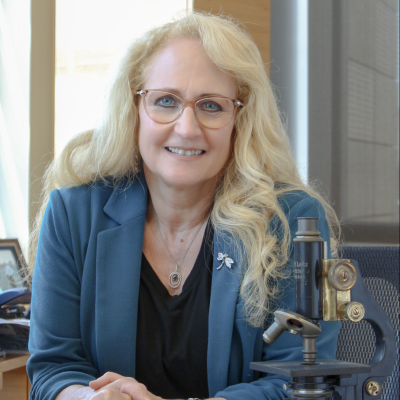
Jo Handelsman, PhD
Tiny Earth Founder
Director, Wisconsin Institute for Discovery
University of Wisconsin-Madison
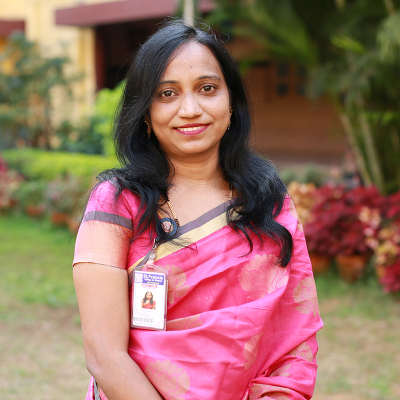
Roselin Polugari, PhD
Head of Department of Microbiology
IQAC Coordinator
St. Francis College for Women, Hyderabad, India
Panelists: Diverse Paths to and from Microbiology
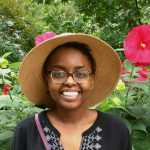
Postdoctoral Researcher
University of Wisconsin-Madison
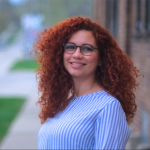
University of Wisconsin-Madison
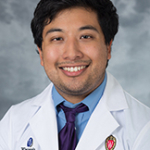
Medical Student
University of Wisconsin-Madison, SMPH
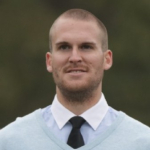
Scientist
PPD, part of Thermo Fisher Scientific
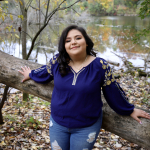
Undergraduate Student
University of Wisconsin-Green Bay
Registration & Lodging
Registration deadline EXTENDED to Friday, May 24th.
Lodging Requests are CLOSED.
Lodging Requests are CLOSED.
Note: Registration is required for attendance. Register and request lodging separately.
*A limited number of rooms are available. Lodging will be assigned on first come, first serve basis. Attendees are encouraged to register and request lodging at their earliest convenience for priority.
Instructors with students under the age of 18 who are interested in participating, reach out to tinyearth@wid.wisc.edu by April 15.
Student Registration Fee: $30 | Instructor Registration Fee: $60
Use code “micro” for 10% off your registration when attending in groups of 4 or more!
Groups must include at least 3 students and group members must be attending from the same institution for the discount to apply. Attendees may register and use the code together or separately.
Lodging
Free lodging for up to two (2) nights at University Housing is included with registration*.
- Double/shared dorm for students
- Single rooms requests assessed on a case-by-case basis
- Single dorm for instructors
Additional nights may be purchased with registration for $40/night. Please also indicate any additional nights requested in the Lodging & Meals form.
Meals
- Lunch is included with registration.
- Dining hall breakfast tokens are included with University Housing lodging.
- Dinner will not be provided.
View more information on parking, campus transportation, and alternative lodging »
Student Research Posters
Submit a Student Research Poster Abstract by Friday, May 24
Submit your final poster by Friday, May 31
Submit your final poster by Friday, May 31
Share your Tiny Earth research findings with the network on June 13th!
Submit only one abstract per group. Coordinate with your group members to determine who will submit on your group’s behalf.
- Register for the event (individually or as a group; one ticket per student)
- Submit a Student Research Presentation abstract (as a group)
- Indicate your lodging requests and dietary restrictions (individually)
- Return to the initial abstract submission form to submit your final research presentation in PDF format by May 31 (as a group)
- Review the Student Presentation Guidelines & Expectations
- Print and bring your poster to the event!
Instructor Tapas Talks
Submit a Tapas Talk by Friday, May 24
Submit presentation slides by Friday, May 31
Submit presentation slides by Friday, May 31
Have updates regarding your antibiotic discovery research or want to share exciting instructional innovations? Present a 7-minute Tapas Talks during TEPI Day on June 12th!
Suggested topics include, but are not limited to:
- Curriculum and Instruction
- Creating and adapting new and engaging courses for all kinds of learners; using evidence-based teaching practices; achieving diversity in STEM
- Science and Discovery
- Discovering new antibiotics, chemical structures, and genome sequences; new and effective protocols; interdisciplinary or transdisciplinary research
- Community Engagement
- Designing activities and resources for school, communities, and citizen scientists; nurturing Tiny Earth’s community of instructors, students, and partners; tiny Earth events and related programs
- Network Expansion and Training
- Building a diverse and inclusive global community of Tiny Earth partners; hosting trainings
